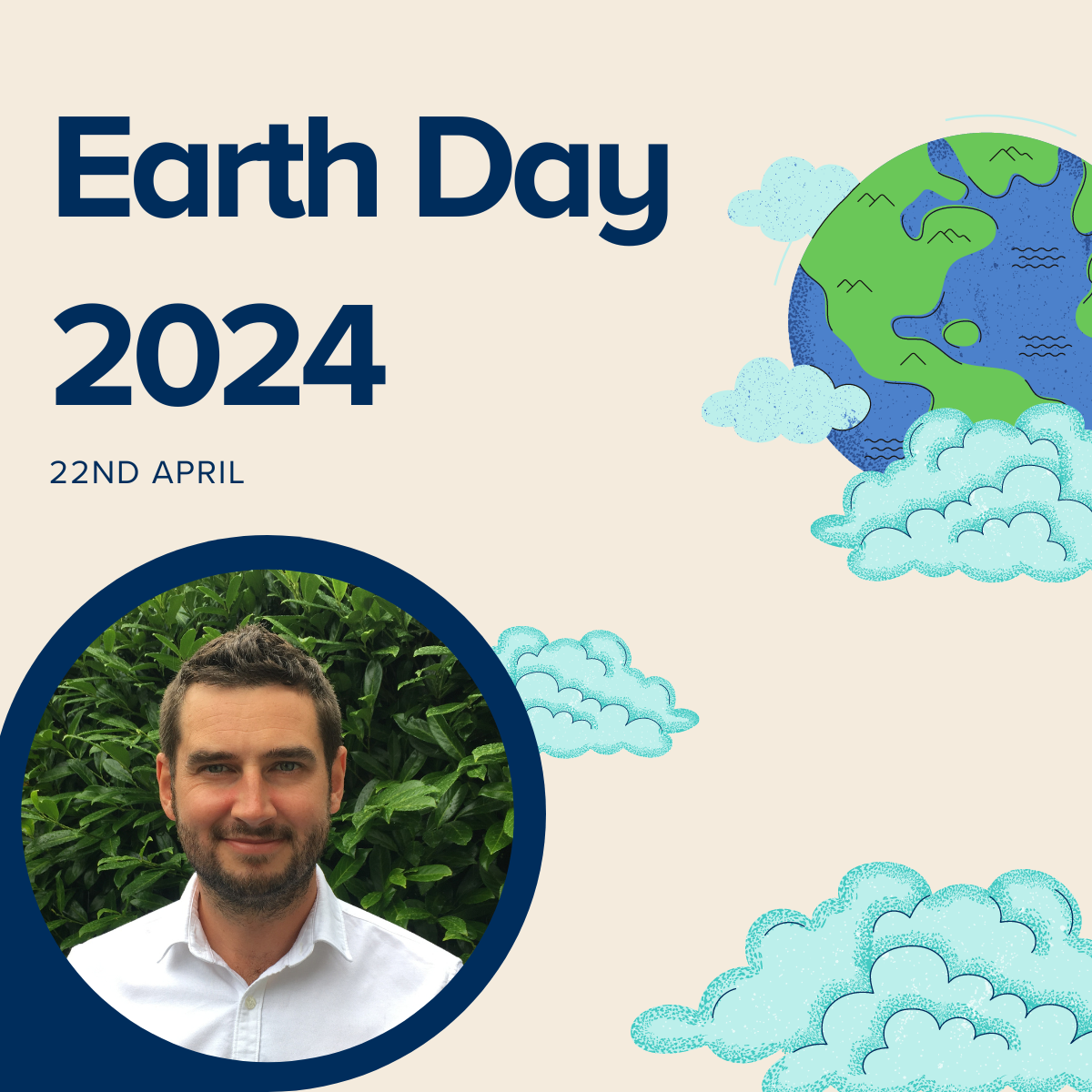
April 22nd is Earth Day. To mark the day, we spoke with our Group Head of Sustainability, Mark Kershaw to find out more about this significant day, this year's theme of 'Planet vs. Plastics' and what we can do to help combat plastic pollution.
Tell us more about Earth Day
The inaugural Earth Day took place in 1970, marking the beginning of an annual celebration on the 22nd April each year. It serves to bring people together worldwide in support of environmental conservation, encouraging us to take action to protect our planet.
This year’s theme, Planet vs. Plastics, underscores the need to address the escalating issue of plastic pollution and advocates for a 60% reduction in plastic production by 2040.
Why the focus on plastics?
The volume of plastic produced globally is staggering, with the UN estimating it to be around 430 million tonnes annually*. To put that in perspective, that’s equivalent to the weight of approximately 85 million elephants.
Plastic is affordable, durable, flexible and is found in so many of our everyday items. But unfortunately, much of this plastic – we’re talking billions of items – is mismanaged, polluting our oceans, lakes, rivers and land. This is harmful to human health and the delicate balance of ecosystems. Marine plastic pollution, in particular, presents a host of hazards, from the entanglement of marine life such as turtles and dolphins, to being ingested by birds and fish, often mistaken as food. Compounding this issue is the fact that plastic can take hundreds of years to decompose, with microplastics persisting even longer – ever seen tiny, coloured beads on the beach? These are microplastics and are found on beaches around the globe.
And it’s not just plastic pollution that is an issue, the production of plastic is also energy intensive and is largely reliant on fossil fuels such as oil. The manufacturing process generates significant greenhouse gas emissions, contributing to climate change.
What can we do to help combat plastic pollution?
While addressing the problem necessitates systemic changes, individual actions can contribute significantly. Simple steps, such as opting for unpackaged fruit and vegetables, using a reusable coffee cup and drink bottle, reusing shopping bags and avoiding single use plastic straws and cutlery, can collectively make a big difference.
As a business, the biggest area of plastic waste that we can influence is the packaging that is used to protect many of the materials arriving on our sites. There is some great work taking place in our supply chain and last year we collaborated with peers, suppliers and the Supply Chain Sustainability School to publish a report titled Packaging Optimisation in the Housebuilding Sector, highlighting the work being done to optimise and ultimately reduce packaging waste in the industry.
Some examples of the actions taken include using surface protection material containing 60% post-consumer recycled plastic, reducing the use of shrink wrap around products and replacing polystyrene corner and edge protectors with cardboard pulp alternatives. We have also taken steps to reduce the use of plastic in our offices, removing plastic bottles from our tuck shop and installing refillable soap and washing up liquid dispensers to avoid single use containers.
Earth Day serves as a poignant reminder of our collective responsibility to safeguard our planet and embed sustainability into everything we do.
To find out more about the proactive measures we are taking to safeguard the natural environment, please visit: Protecting the environment | Crest Nicholson
Back


